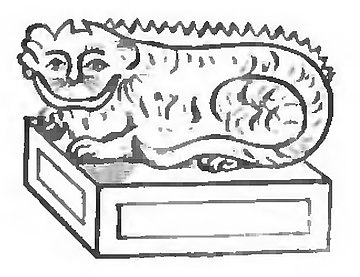5. The son of Heaven occupies the Ming Thang
Grand Fane; rides in the vermilion carriage, drawn
by the red horses with black tails, and bearing the
red flag. He is dressed in the red robes, and wears
the carnation gems. He eats beans and fowls. The
vessels which he uses are tall, (to resemble) the large
growth (of things).
6. They encourage the (continued) growth of what is strong and beautiful[1].
7. In this month orders are given to the music-masters to put in repair the hand-drums, smaller drums, and large drums; to adjust the lutes, large and small, the double flutes, and the pan-pipes; to teach the holding of the shields, pole-axes, lances, and plumes; to tune the organs, large and small, with their pipes and tongues; and to put in order the bells, sonorous stones, the instrument to give the symbol for commencing, and the stopper[2].
8. Orders are given to the (proper) officers to pray for the people and offer sacrifice to the (spirits of the) hills, streams, and all springs. (After that) comes
the great summer sacrifice for rain to God, when all
- ↑ Kû Hsî would remove this paragraph to the thirteenth of the last Part. It seems to me to be in its proper place.
- ↑ See vol iii, p. 324. The stopper is represented thus:—

It was made to sound by a metal rod drawn along the spinous back. I have seen a similar instrument, used for the same purpose, brought from Madras.

